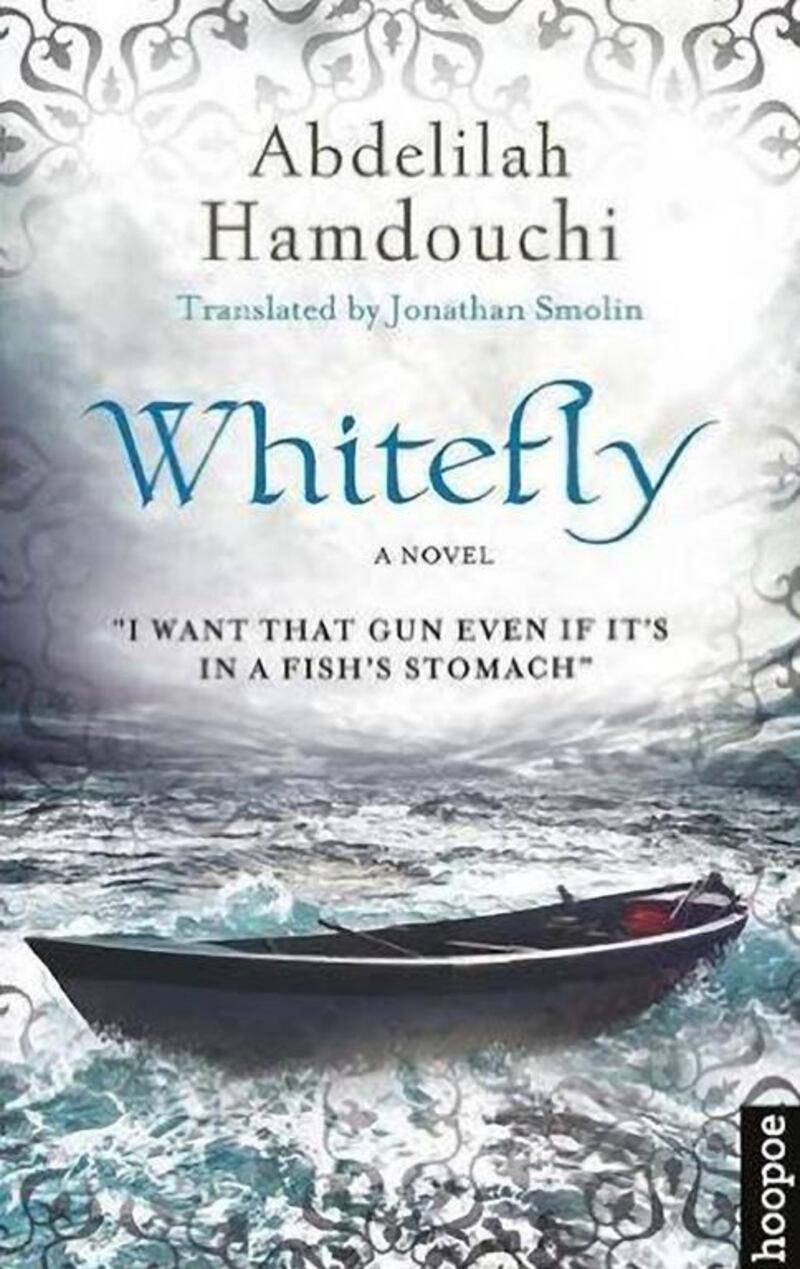"Arabic literature" and "guilty pleasure" are two phrases not often paired in English, at least not since translations of One Thousand and One Nights took Victorian England by heart-fluttering, red-cheeked storm. But a new imprint from the American University in Cairo Press, Hoopoe, is looking to change that.
One of the first books issued, Abdelilah Hamdouchi's Whitefly needn't be blush-inducing. But it is decidedly a pleasure.
On its face, the book is a traditional detective story. Four bodies wash up on a Tangiers beach, and Detective Laafrit of the city’s Criminal Investigations Unit must unravel who they are, why they died, and who – if anyone – is to blame.
Much about Whitefly is the stuff of classic detective writing: Laafrit is a grizzled but likeable department veteran who's stuck amid less-than-brilliant colleagues.
He travels down numerous dead-ends, which are filled with beautiful women, a gun-toting drug lord and small-time criminal informants.
But this is also contemporary Morocco, so CSI Tangiers it ain’t. The forensic scientist who appears at the beach doesn’t even want to touch a dead body, much less examine it. “No need to dirty your hands,” he tells Laafrit.
And forget ballistics reports or DNA. Nobody even seems to take a fingerprint. The information gleaned from the autopsy is what the victims had for a last meal, and this comes only after a special request from Laafrit, whose nickname is translated as “Crafty”.
Whitefly does give us a sense of late-20th century Tangiers. In this, Hamdouchi's novel follows in the tradition of Matt Rees's Omar Youssef novels or Yasmina Khadra's Inspector Llob series, but without the tough social criticism.
It starts by throwing us in the deep end of contemporary Moroccan policing. In the opening scene, every officer in the city has been called out to keep two demonstrations apart: the first protest is staged by unemployed college graduates, and the second by non-graduates. “Hidden hands” are bringing them together, Laafrit says, and a violent clash between police and demonstrators seems inevitable.
But Laafrit manages to defuse the graduates’ demonstration by playing on their hopes and fears. We hear little about the protesters after that, but this opening underlines the tense atmosphere in the city.
It also tells us why many Moroccans would choose to “hrig”, or head to Spain in rickety, illegal boats.
Most of the department thinks that’s why three of the four victims died – they were fleeing to Spain. Only Laafrit is not satisfied with rubber-stamping them as drowned migrants.
By and large, Whitefly takes the part of the educated, secular, middle-class Moroccan detective.
We see the world not as it appears to a protestor, a criminal or a migrant, but alongside Laafrit.
Still, he is not one-sided: he and his wife were anti-regime in their university days, when his wife was arrested and tortured. We read intimate details of her sexual torture and ensuing self-hate, but then her painful section wraps up quickly and tidily when we’re told, “Fate smiled on her, and indeed everything changed once she had [her daughter] Reem”.
Outside of this, we never see police torture first-hand. Laafrit does threaten a roomful of noisy children who are throwing stones, but the scene is played for a laugh.
The book never forces its disparate elements to engage one another: Laafrit’s policing work, his wife’s brokenness, the angry unemployed, his colleagues’ incompetence and organised crime. Instead, the novel takes a sudden and intriguing turn and heads in a different direction entirely.
The plotting is tight and watching the story’s resolution unfold is a delight. It doesn’t end neatly, like a Hercule Poirot novel might. But that’s all right: we didn’t really expect that the Tangiers policing system would be able to wrap up the case.
The reader understands the outlines of what happened, and that’s enough.
Jonathan Smolin’s English translation is readable, but occasionally clunks, hewing too closely to the Arabic instead of crafting a separate, colloquial English.
Hamdouchi’s book also has missed opportunities – it fails to push on Laafrit’s relationship with his wife or on the reality of torture and corruption inside the Moroccan policing system. But as a guilty-pleasure read, it is a winner.
M Lynx Qualey is a freelance writer based in Cairo who blogs at arablit.wordpress.com.










